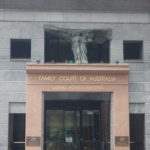The Offence of Child Sexual Assault in New South Wales

A 65 year old man has been arrested and charged with the sexual assault of a boy in Sydney more than 30 years ago.
NSW Police allege the man sexually assaulted a boy, then aged between 10 and 14 years old at various locations in Sydney’s northwest between 1985 and 1989.
He has been charged with two counts of child sexual assault, granted strict conditional by the police, and his bail was continued by the magistrate in Burwood Local Court on Monday 2 November 2020.
Police have been ordered to serve a brief of evidence upon the defence within the next four weeks.
The offence of sexual assault
Under the Crimes Act 1900 (NSW), a person who has sexual intercourse with another person without that other person’s consent, and knowing the other person does not consent, may be found guilty of the crime of sexual assault.
The maximum penalty for sexual assault of a person aged 16 years or over is 14 years in prison.
Offences of child sexual assault
However, sexual assaults against children carry higher maximum penalties than this.
For example, the maximum penalty for having sexual intercourse with a child aged at least 10 but less than 14 years is 16 years in prison, while the maximum in the case of a child under the age of 10 years is life in prison.
This graduation generally reflects the seriousness of offences committed against those under the age of 16 years.
Prosecution of historic sexual offences
Although for a child of any age, the long-term impacts of being sexually assaulted are only just beginning to be understood as more adult survivors come forward. In Australia there is no specific statute of limitations for criminal offences involving child sexual abuse.
However, prosecutors can sometimes decide not to press charges for even the most serious offences if the complaint is made years or decades after the alleged incident simply because there is not enough vital evidence or key witnesses available to make a strong case. For the defendant too – memories fade, specific events may be harder to recall – these make it much harder to prove or disprove allegations.
This can be devastating for victims, and it is now widely understood that many people who were sexually assaulted as children often take many years to recover, to come to terms with what happened enough, to seek help and to seek justice through pressing charges.
Historic legal reform in NSW
Legal reform in recent years have removed the presumption that a failure to report sexual assault immediately indicates a false allegation. However, victims of sexual assault who fail to speak up sooner can still face difficulties in getting their case heard.
However, in response to recommendations made by the 2017 Royal Commission into Institutional Responses Child Sexual Abuse, historic law reforms have been introduced to New South Wales which make it possible for jurors to be informed about the prior convictions of an offender who is on trial for child sex offences.
‘Tendency’ and ‘coincidence’ evidence
The Evidence Amendment (Tendency and Coincidence) Act 2020 amended the Evidence Act 1995 in relation to tendency evidence and coincidence evidence for cases involving child sexual assault allegations..
Tendency evidence, previously known as ‘propensity evidence’, is that which is adduced to prove that a person has or had a tendency to act in a particular way, or to have a particular state of mind. Such evidence can take the form of previous convictions, or even allegations, against a person which are similar to those in the present case.
Coincidence evidence, previously known as ‘similar fact evidence’, is that which is adduced to prove that, because of the improbability of two or more substantially and relevantly similar events occurring in substantially similar circumstances coincidentally, a person did a particular act or had a particular state of mind.
The new laws make it easier for the prosecution to put these types of evidence before a jury.
He said, she said
Because child sexual abuse offences are generally committed in private, with no eyewitnesses, and in some cases there will be no medical or scientific evidence capable of confirming the abuse, juries often have to deliberate on the basis of ‘he said/ she said’ or ‘word against ‘word.’
Therefore, after a major study into the way juries deliberate in child sex offence cases, and significant consideration for whether introducing tendency evidence was unfair to the defendant – reducing the right to a ‘fair and impartial trial,’
Royal Commission
However, in cases of child sexual abuse, the Royal Commission found that tendency and coincidence evidence was highly relevant, and that it was often, in fact, unfair for abuse survivors to have it excluded, meaning it was survivors of abuse who did not get a fair go rather than those who were accused of abuse.
The New South Wales Government amended the law earlier this year and other states are expected to follow suit.







